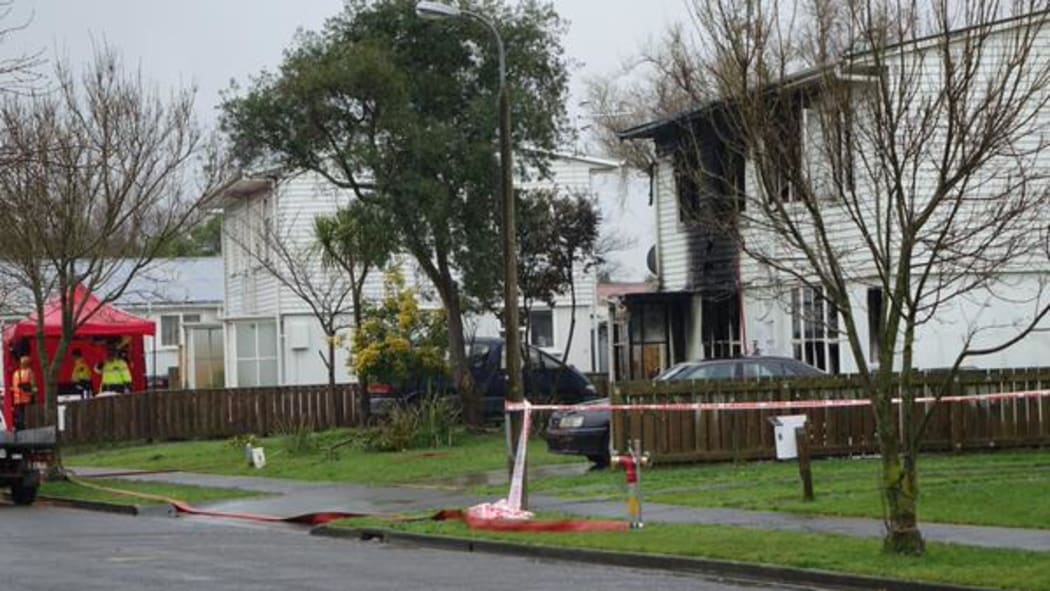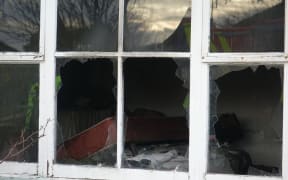A fire which killed two people in Palmerston North began when stove elements were left on after being used for 'spotting' cannabis, a coroner has found.

Smoke alarms woke the family but Bessie Tokona, 61, and Eunice Felton, 6, were unable to escape the fire. Photo: RNZ / Max Towle
Bessie Tokona, 61, and her six-year-old granddaughter, Eunice Felton, died in September 2015.
They lived in a Housing New Zealand home with Eunice's mother, Nechia Tokona, and eight other children.
Nechia Tokona told the inquest she had left two elements turned on after using them to spot cannabis.
Coroner Tim Scott released his findings today.
Housing New Zealand had converted two semi-detached houses into one property by removing a fire wall so the large family could be accommodated.
Smoke alarms woke the family, and everybody except Bessie Tokona and Eunice managed to escape the fire.
The family's escape route down the stairs was blocked by flames, but those who survived managed to break upstairs windows and climb down a fixed fire escape ladder or jump from the upper storey to the ground.
Mr Scott said firefighters found Eunice in her bedroom but she appeared to be dead, and Ms Tokona could not be found.
"Within a short period of time the firefighters themselves became under threat and needed to be rescued themselves. Although they attempted to take Eunice from the building they were not able to do so."
The coroner said he was satisfied the Fire Service did the best it could to rescue the whānau members from the house.
An investigator told an inquest in October last year the fire's most probable ignition point was an element on the stove, and Nechia Tokona admitted at the inquest that she had left two elements turned on.
Evidence was given that the upstairs windows of the house were fitted with safety latches and would only open a small distance.
That had been done by Housing New Zealand to prevent the youngest whānau members from falling from an open window.
The home had had a second escape ladder, but it had been removed because it was rotten and the agency had not replaced it.
The coroner said that was because the housing corporation's policy now was to make fire escape routes user-friendly for all people.
"While I can understand the reasoning, I do not accept it. These policies did not result in any additional fatalities at Exeter Crescent but they might have done.
"Windows needed to be broken and that comes with its own set of issues, and there was only one and not two fire escapes. When it comes to a fire surely the more escape routes the better even if some of these cannot be used by all people all of the time."
The home had alarms capable of detecting a fast-flaming fire, but the Fire Service now recommended a different kind of alarm, which detected large amounts of smoke.
Mr Scott said Housing New Zealand began rolling out improved smoke alarms last year.
He said as a result of what he heard during the inquest he had now also replaced the smoke alarms in his own home.


